Unexpected ceiling art:
Sustainable ceiling systems at the Art Gallery of NSW
At the Sydney Modern building, SAS International Australia’s advanced ceiling systems merge art, architecture and sustainability. Combining refined aesthetics, acoustic performance and verified circular design credentials, the SAS205, SAS320 and SAS750 systems exemplify how intelligent specification supports beauty, functionality and environmental responsibility.
When visitors first step into the Art Gallery of New South Wales’ new building, the Sydney Modern, they are met with a masterful dialogue between art, architecture and landscape. One of the state’s most high-profile architectural and cultural projects in decades, the light-filled galleries, expansive public spaces and minimal aesthetic create an atmosphere of quiet precision, designed to elevate the experience of the art itself. Yet much of what makes this landmark project such a striking example of modern design and a point of reference for sustainability lies in plain sight but also subtly and seamlessly integrated into the very fabric of the building.
At the heart of this achievement are the sophisticated ceiling systems by SAS International Australia. The manufacturer supplied a combination of its innovative ceiling solutions to meet the project’s rigorous aesthetic and performance demands, including the SAS750 Vertiline blade system, SAS205 tiles and SAS320 tiles.
“The Art Gallery of NSW recently became the first public art museum in Australia to achieve a 6-Star Green Star rating,” says Craig Penton, General Manager at SAS International Australia. “It serves as a powerful case study for how intelligent product specification can deliver both architectural excellence and the highest environmental benefits.”
Designed for performance, engineered for adaptability
The SAS750, SAS205 and SAS320 ceiling systems, all in a modern white finish, are used extensively across the main entrance areas, mezzanine levels and gallery spaces. Together, they establish a unified architectural rhythm and exemplify a new shift in sustainable design, where longevity, transparency and holistic performance come together to create enduring value
The SAS205 is a suspended metal ceiling system designed for applications that emphasise both functionality and accessibility. Supported at the perimeters, its hook-on modular tiles sit on a concealed J-Bar grid, achieving clear spans of up to 3000 mm. “This product has been specifically designed for high-traffic environments like hospitals, hotels and offices,” says Craig. Ingeniously engineered for spaces requiring frequent maintenance access, the demountable tiles not only simplify servicing but also make the system inherently adaptable, enabling building churn and adaptive reuse without the wasteful demolition typically associated with conventional ceiling systems.
The complementary SAS205 and SAS320 ceiling tile systems offer a targeted acoustic performance without the need for a visible ceiling grid. Its lay-in acoustic tiles are available in custom sizes, achieving clean visual continuity while accommodating integrated lighting, speakers or sensors through pre-formed apertures. The absence of traditional suspension components not only reduces clashes with services but also delivers a brighter, uncluttered ceiling plane suited to high-end public environments.
The SAS750 Vertiline system extends this refined architectural language into three dimensions, introducing vertical blades that frame light and enhance spatial rhythm. Its modular profiles, which are available in curved, linear and waveform configurations, allow architects to express movement and depth while maintaining access and service integration.
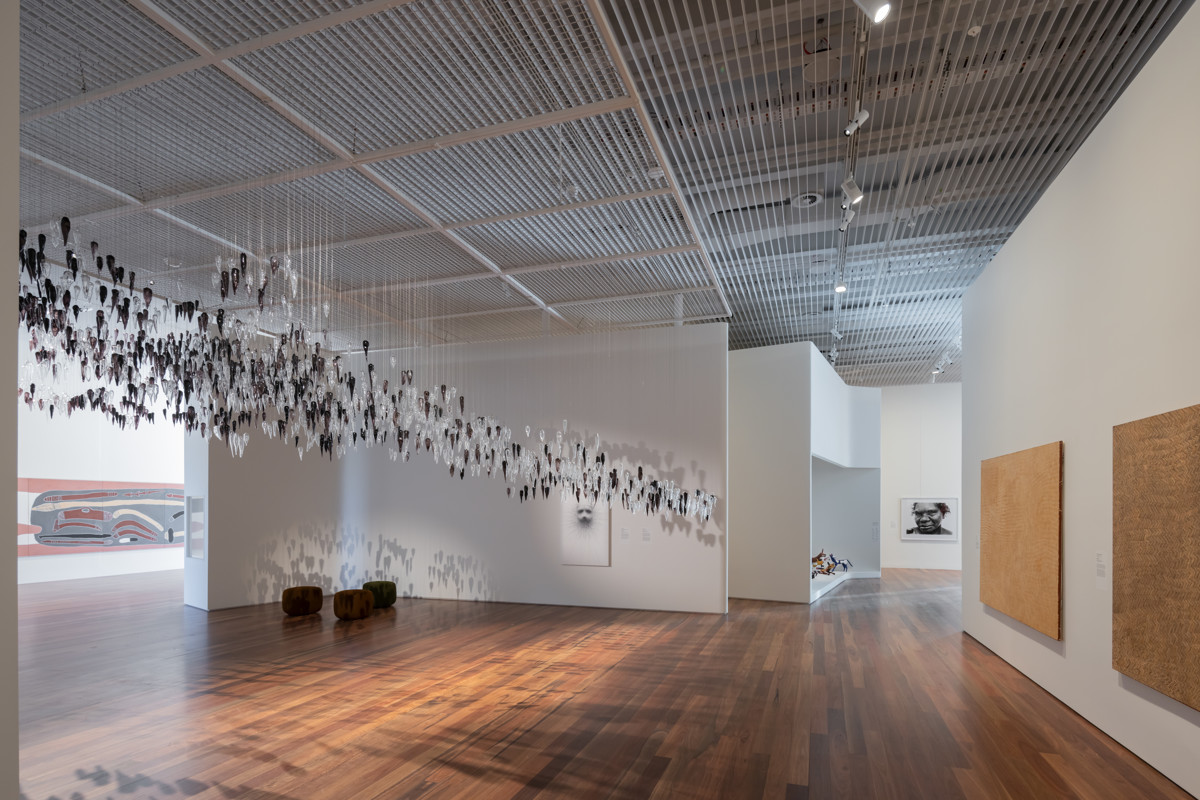
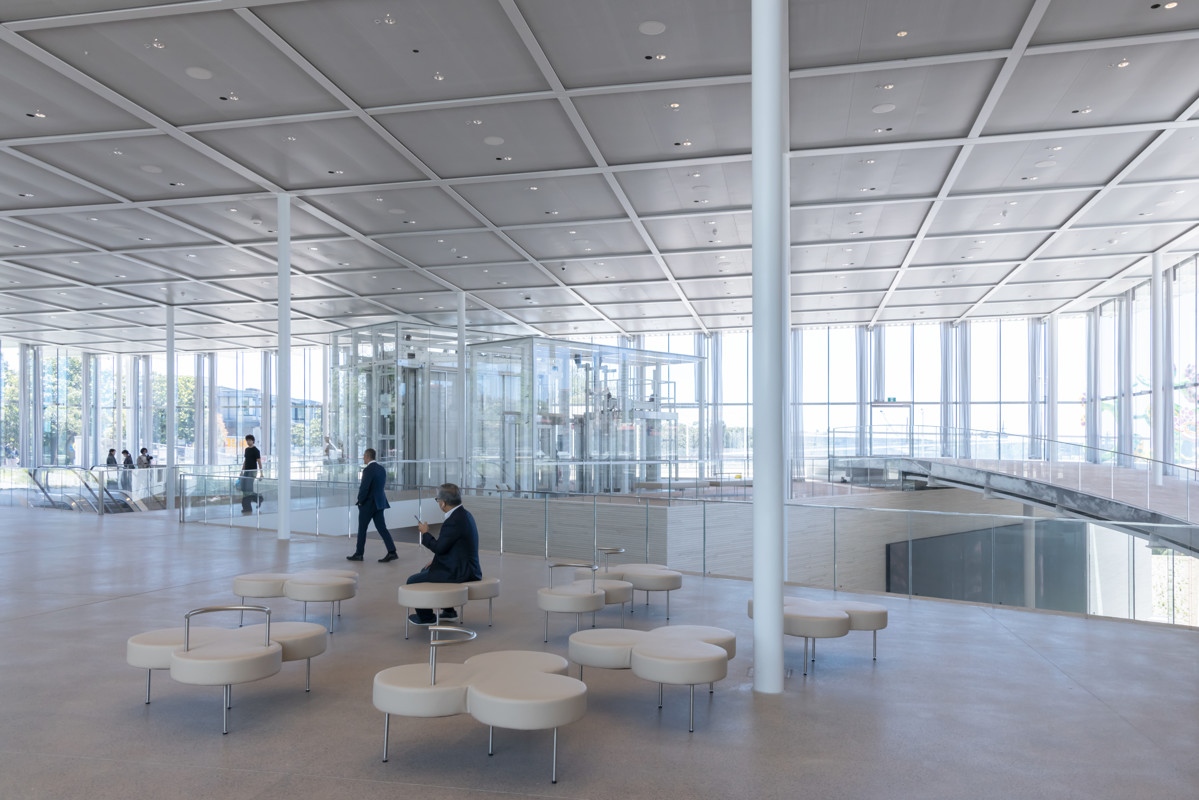
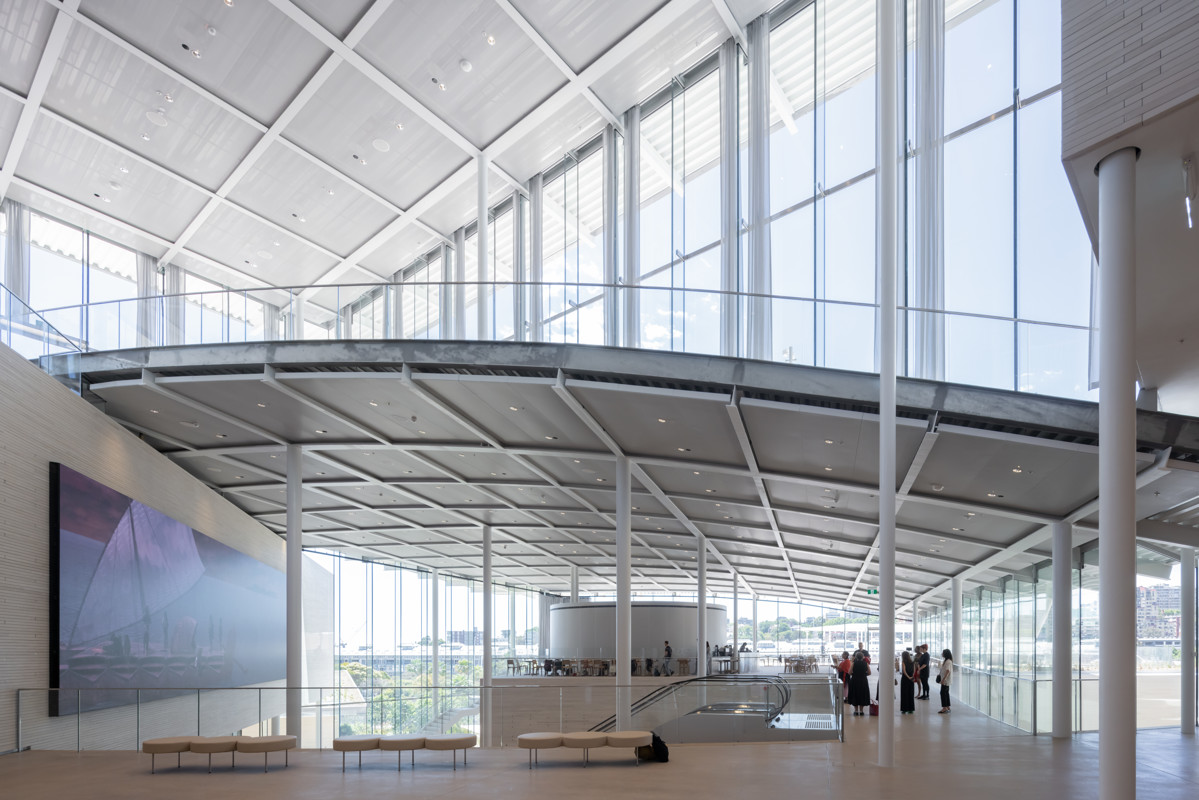
A commitment to circularity and material health
But what truly sets the SAS systems apart from similar products is their profound and verifiable commitment to sustainability, which begins with their material composition and deep-rooted adherence to circular economy principles. “The system’s steel and aluminium tiles are manufactured with a typical recycled content of 20-25% and are almost fully recyclable at the end of their long life,” enthuses Craig. “We also close the loop even further by ensuring that any manufacturing scrap is returned to its suppliers for reuse.”
This commitment to circularity is validated by one of the industry’s most respected credentials: Cradle to Cradle Certified® Bronze. “We’re incredibly proud of this accreditation, and in particular for being the first ceiling manufacturer to be certified,” says Craig. “It demonstrates our leadership in circular design and material health, assuring specifiers that the product has been rigorously assessed for its environmental and social performance.” And he’s right. That achievement reinforces a holistic sustainability story that marries responsible materiality with exceptional longevity.
With a 25-year product life expectancy, SAS metal ceiling systems significantly reduce replacement cycles, minimising waste and the operational impacts associated with repairs and upkeep. The washable surface also reduces the need for harsh cleaning chemicals, a benefit over more fragile alternatives like mineral fibre boards.
Transparency in the age of decarbonisation
This comprehensive sustainability profile is even more intricate and is further enhanced by SAS International’s commitment to accountability. “As anyone in the construction industry knows, the focus on decarbonisation has intensified over the last few years,” says Craig. “We’ve seen the rise of embodied carbon as a critical metric for responsible design, and we’ve risen to the challenge by adopting an approach of radical transparency through verified Environmental Product Declarations (EPDs).”
The EPD for the SAS205 system provides detailed cradle-to-gate impact data, allowing architects and specifiers to make informed decisions and accurately account for a project’s carbon footprint. For example, the EPD quantifies the global warming potential (GWP) for each component, from the grid (8.34 kg CO₂e/m²) to various tile configurations, such as a perforated tile with an acoustic fleece (10.92 kg CO₂e/m²); a perforated tile with an 18 mm/80 kg pad (14.11kg CO₂e/m²); and a perforated tile with acoustic pad and steel backing plate (32.48kg CO₂e/m²). “The EPD even breaks down the impact of transportation, noting that shipping to Australia adds approximately 7.13 kg CO₂e/m²,” explains Craig.
Like the SAS205, both the SAS320 and SAS750 systems are also supported by verified EPDs. Together, these documents give architects the data needed to make informed performance-based design decisions and responsible material specifications. This level of detail empowers design teams to value-engineer solutions that actively reduce embodied carbon, for instance, by optimising a tile choice to avoid heavier backing plates. And since SAS International Australia offers the SAS Horizon program, which provides program-level EPDs for its steel and aluminium ranges, the manufacturer provides a clear pathway to even lower embodied carbon solutions.
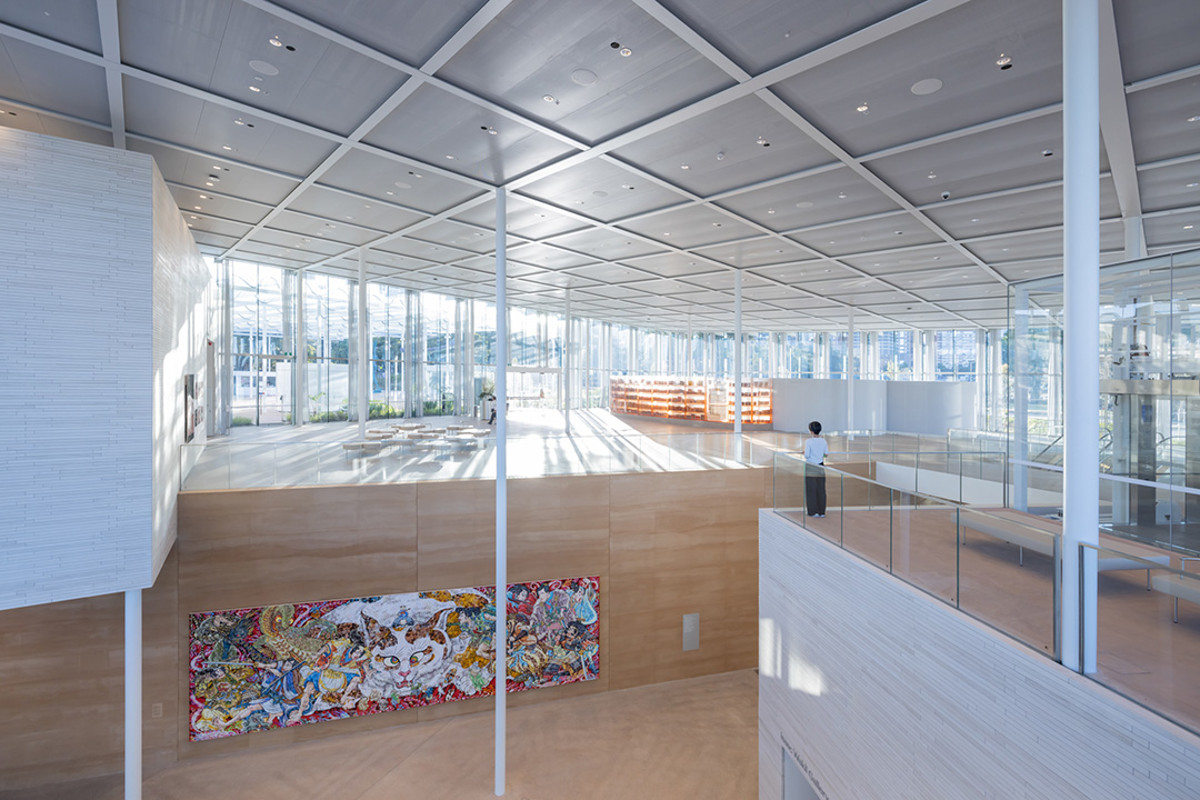
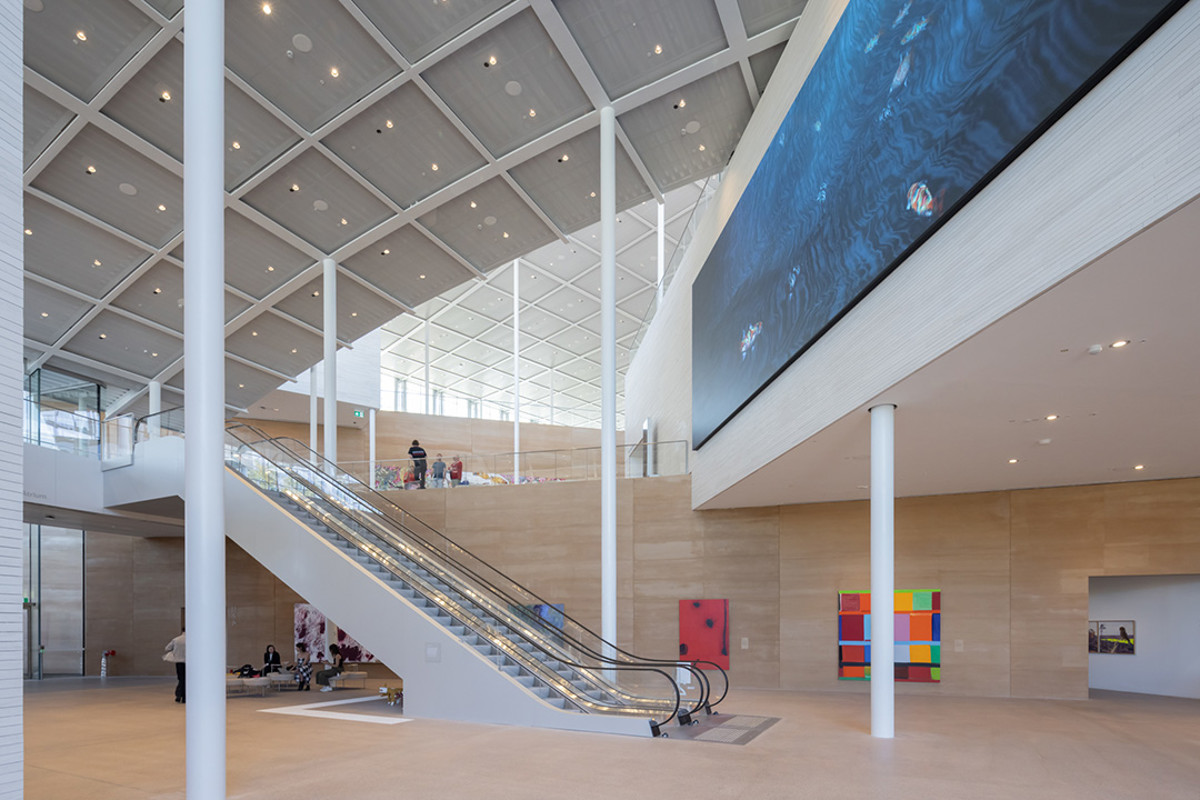
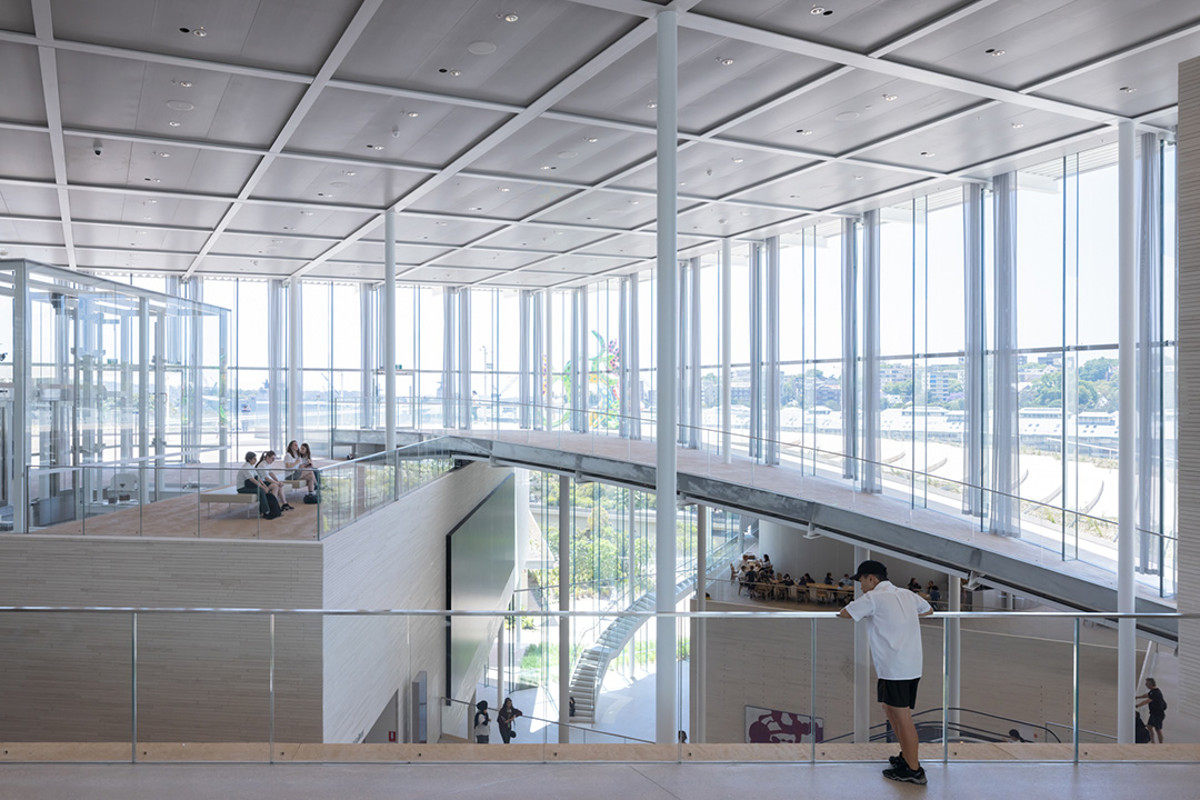
Fostering healthy and resilient indoor environments
Now, a truly sustainable product must also contribute to the health and well-being of building occupants. SAS systems excel in creating high-quality indoor environments (IEQ) through superior acoustic and fire performance. “With specified perforations and acoustic infill pads, the system can achieve up to a Class A sound absorption rating and provide sound insulation of up to 41 dB,” Craig explains. “This high level of performance is crucial for improving speech privacy, reducing stress and creating comfortable interior spaces, which are all core outcomes for modern IEQ standards.”
In terms of fire safety, the system’s metal substrates are inherently robust and contribute to low-smoke environments. For Australian projects, all ceiling systems must comply with the National Construction Code (NCC) and are tested to Australian Standard AS 5637.1:2015, which classifies materials based on their fire hazard properties. SAS systems achieve a Group 1 rating, the highest classification for fire resistance, making them suitable for any application. This combination of proven acoustic performance, fire safety and durability not only ensures a pristine indoor environment but also reduces compliance risks, making it a particularly clever choice for long-term project resilience.
This forward-thinking approach is also underpinned by a suite of organisational certifications, including ISO 14001 for environmental management, ISO 9001 for quality and ISO 45001 for occupational health and safety. For Australian projects, these credentials, alongside the product-specific EPDs and C2C certification, directly support the pursuit of Green Star credits. As such, the SAS ceiling systems are much more than functional components – elegantly concealed within the stunning architecture, they quietly help high-profile projects like this one reimagine sustainability as the highest form of art.
Article by Architecture & Design

